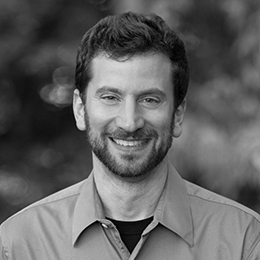Will FDA choke off promising adult stem cell research?
Are you free to use your own body’s cells to treat your medical condition? Under the rule of the FDA, apparently not. A U.S. District Court has sided with the FDA in its lawsuit against Regenerative Sciences, stopping the company from treating orthopedic injuries by culturing and re-injecting a patient’s own stem cells.
Adult stem cell therapies are relatively new; their promise is only starting to be realized, as in a recent study, which saw the safe regrowth of damaged heart tissue in 17 heart attack patients. Yet just as these first successful treatments are emerging, the FDA is flexing its regulatory muscle.
The lawsuit against Regenerative is precedent-setting, because the FDA is, in effect, applying drug manufacturing standards to the use of your own bodily cells. As one researcher put it, “The FDA does not come into a cardiology practice and tell doctors how to do their surgeries or how to do heart replacements. And yet they feel they can come into a stem cell clinic.”
The problem with the FDA “coming into a stem cell clinic” is that it could have a chilling effect on this whole field of medical research. What, for instance, might happen to the costs of developing adult stem cell treatments under the burden of the FDA’s regulatory intervention? The history of drug development over the past few decades offers a hint.
According to the Tufts Center for the Study of Drug Development, the cost of getting a new drug developed and approved 30 years ago was around $138 million (adjusted for inflation). Today, it’s around $1 billion. Another study finds that only 2 out of 10 drugs ever earn enough to cover the R&D costs for the manufacturer — and that’s after they make it to market. How many potentially lifesaving drugs never even make it out of the lab, being too expensive to pursue under FDA control?
How many promising avenues of adult stem cell research will be cut off by the same regulatory oversight? And how many of us who could benefit from new treatments will instead be forced to endure pain and debilitating disease?
Christopher Centeno, the director of Regenerative Sciences, sees his company’s lawsuit as “a 21st-century civil rights issue that will define what control you have about the use of your own cells and tissue. If a loved one is dying in intensive care and a well-done study shows that the patient’s own cells can be used to help, does the patient get to decide to use those cells, or is that a decision for the FDA? Will the patient still be alive while we wait on Washington to issue this decision?”
Unfortunately, the prospect of patients dying waiting for the FDA to act is all too real — as suggested, again, by its regulation of drugs and medical devices.
Because the agency has the power to keep drugs and devices off the market while its regulators plod through their labyrinthine review process, we and our doctors are forbidden by law from using treatments that lack the FDA’s stamp of approval, even with informed consent. In cases where the patient has little time left and no other options, this leads to tragic outcomes.
Consider a recently approved device designed to replace a brittle aortic valve. During a four-year period of FDA review, the device was used safely in Europe while being forbidden in America. According to one commentator, “More than 15,000 patients worldwide will receive the device by the time it’s slated for approval in the U.S. Some Americans healthy enough to fly have sought the procedure in Europe. Tens of thousands of Americans unable to travel, and too sick to undergo open-heart surgery, have died during the intervening four years.”
The tragedy of dying patients denied the right to use drugs under FDA review is one that has occurred again and again — as in the case of the cancer drug interleukin-2, or beta blockers, which reduce the risk of secondary heart attacks. Estimates put the death toll from the FDA’s withholding of these drugs in the tens of thousands. Do we really want to see the same tragic toll occur in the context of stem cell therapies?
There is no question that the government must spare no effort in defining and prosecuting real cases of medical fraud, malpractice and criminal negligence — and there is no question that such cases exist in the stem cell market. But instead of serving as our protector against charlatans who prey on the sick and desperate, the FDA has itself become an agent of coercion, forcibly denying us the freedom to use treatments that could save our lives.
Regenerative Sciences plans to appeal the decision. It would be a tragedy if we allow the FDA’s regulatory tentacles to extend into adult stem cell research and choke off this promising area of medicine in its infancy.

![Will FDA choke off promising adult stem cell research? [The Daily Caller]](https://ari.aynrand.org/wp-content/uploads/2019/08/stem_cell_570.jpg)




